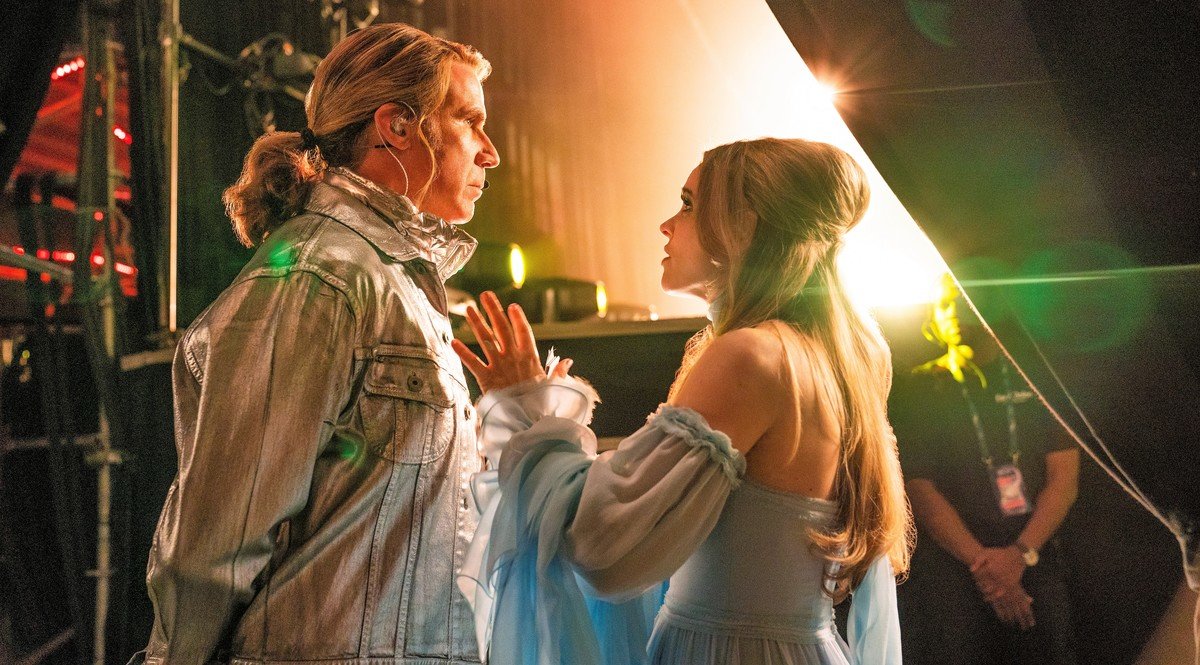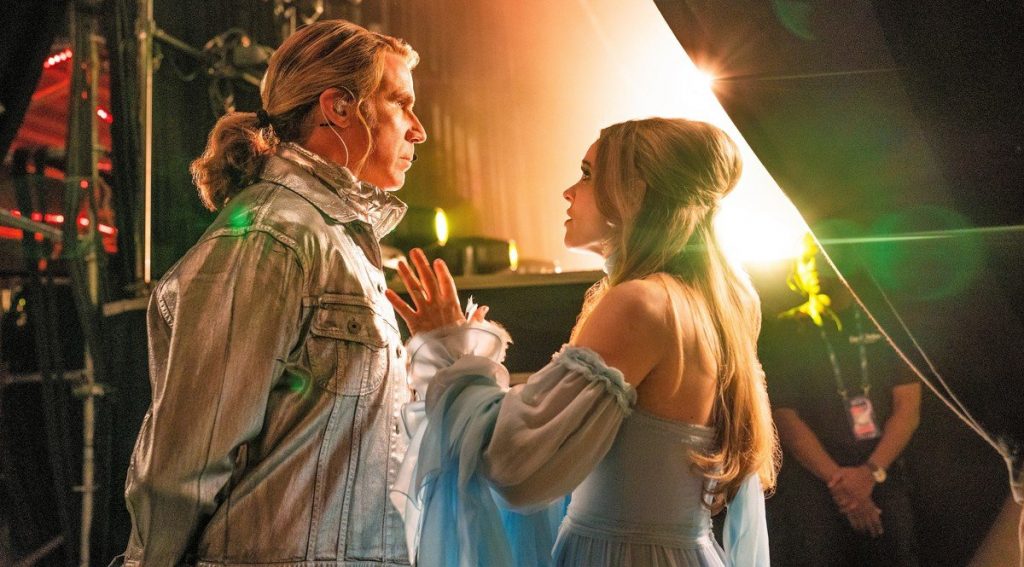

It is a rare film that makes me want to turn around and straight away watch it again.
Eurovision Song Contest: The Story of Fire Saga, which is the latest in the long line of Will Ferrell topical comedies, does straight from the start just the sort of things you expect it will do. Yet it does them so well that after a second (and now third) viewing, for me, at least, the sheer unstoppable happiness of the story makes it overflow from a category I initially wanted to call the very best sort of pretty good, to just plain old good.
Perhaps most similar in tone to his beloved performance in the Christmas classic Elf, Ferrell here plays Lars Erickssong, a middle-aged Icelander who still lives at home with his taciturn fisherman father (Pierce Brosnan). Alongside his talented childhood friend and bandmate Sigrit Ericksdottir (Rachel McAdams) – who is probably not his sister, he is pretty sure – Lars’ singular, driving, lifelong ambition is to win the film’s titular song contest.
As a little bit of context for those not yet acquainted with Eurovision, this annual musical event is like American Idol meets the Olympics. Still unknown to many people in North America, the event is a household name for Europeans, the sort of thing many throw parties to watch.
Like the Olympics, the contestants represent their various homelands, and so a good part of the fun is the good-natured rivalry between nations. The even greater part of the fun, though, is how very cringey so much of it is.
Paradigmatically camp (in the British sense), the Eurovision song contest is the sort of bad you can just about convince yourself (perhaps after a drink or two) is hilarious good fun.
The intrinsic absurdity of making success in this arena as his life’s ambition, therefore, should by rights make for a movie about a central character that is earnestly, desperately sad. But in the comically alchemical hands of Will Ferrell, such otherwise hopeless material transmutes into a persistent if understated (relative to his other work) kind of joy.
Sprinkled throughout with bits of real (and no doubt exaggerated) Icelandic culture like knit sweaters and belief in elves, this Netflix Original follows Lars and Sigrit as they launch out from their hometown of Husavik (population 2,307) into the glamorous, high-profile world of European pop stardom.
The small-town dreamers compete against the likes of Icelandic favourite Katiana (Demi Lovato) and glamorous Russian sensation Alexander Lemtov (Dan Stevens). They also get pulled in opposite directions by the allure of worldliness and the quest to sing their speorg note – the Icelandic-sounding (but from what I can tell, wholly fictional) musical note which expresses a singer’s truest self.
There are several musical numbers and lots of silliness, but as in the best comedies, the principal pleasure comes from the characters. Lars’ apparently bottomless bad judgment and Sigrit’s mishap-laden confidence in him are delightful precisely because they never plunge either character into distress deeper than their native hope and good humour.
The attitudes are half the fun, then, and their accents make up a lot of the other half (McAdams’ is great, Ferrell’s slips sometimes, but we don’t really mind). The third half of the fun (comedy encourages this kind of illogic of excess), are all the cheesy, faux-serious-half-serious, semi-successful graspings after greatness that are only fitting for a film on this subject.
The film certainly has its flaws, and as with most things in this world, the eye on the lookout for shortcomings will not have far to look. (Some of the humour is crude, gender-bendy, and for one weird moment, Satanist – as ever, concerned viewers will probably do well to consult a more detailed content advisory.)
But the ear equipped to patiently endure some of the predictable noise and nonsense characteristic of our era might just hear an echo of that rarest and most beautiful of sounds, evocative of both home and eternity, a pure delight that springs from an unconquerable kind of innocence.
This description of the film may not ring true for everyone, but for this member in the audience, at least, even the third time around, Eurovision hits the speorg note.
(Originally published in The B.C. Catholic)
